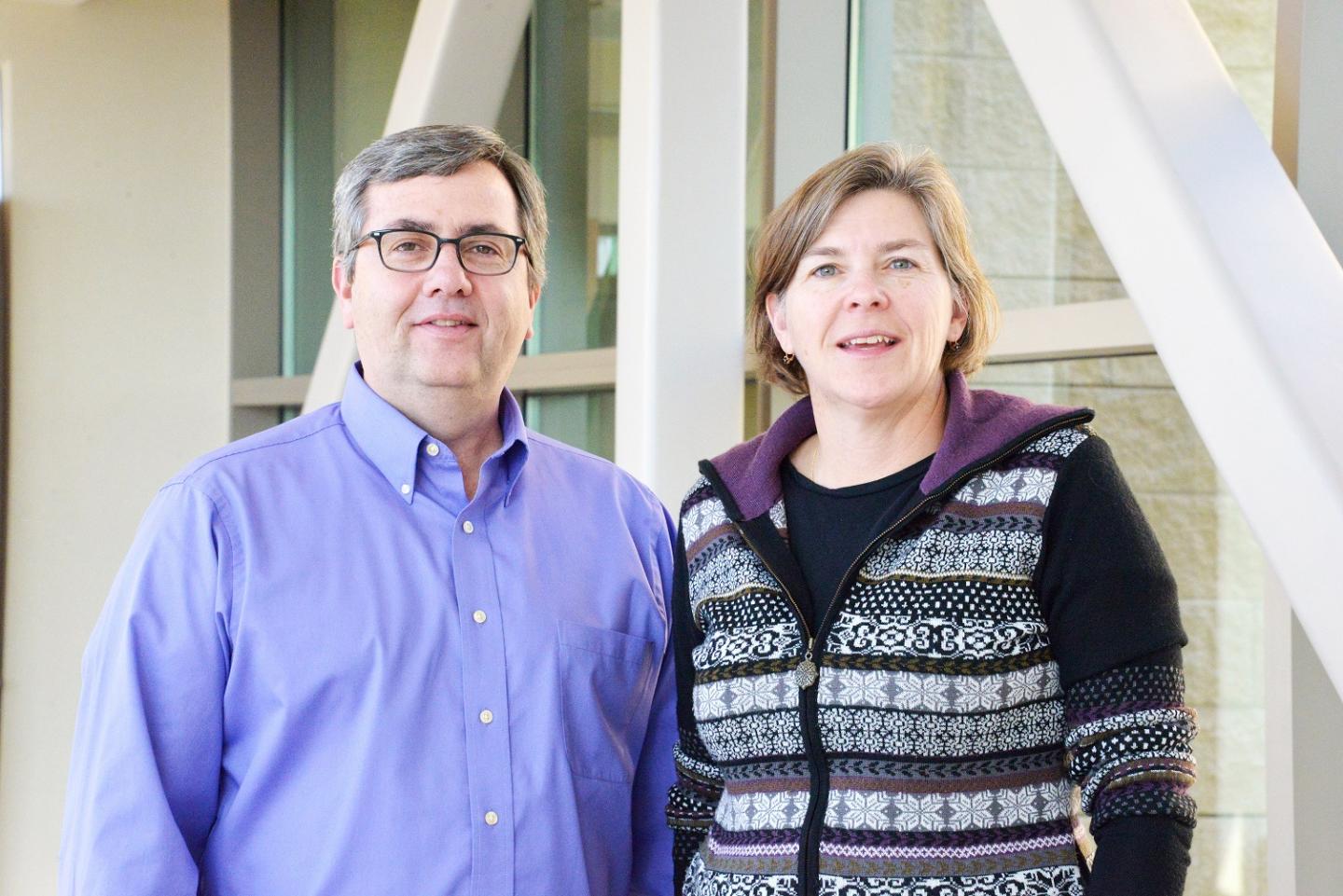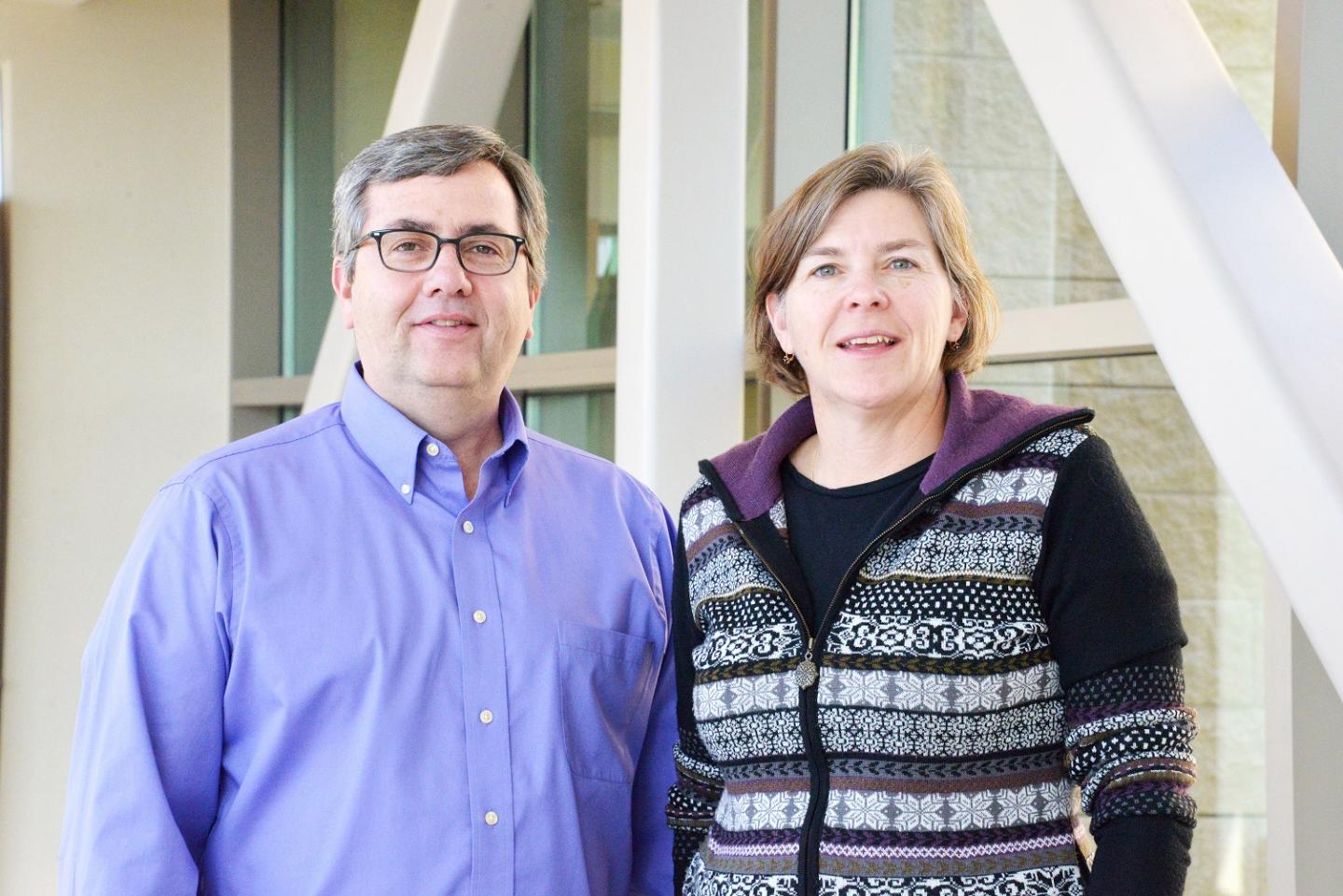
Credit: Huntsman Cancer Institute
SALT LAKE CITY – People with an inherited syndrome called familial adenomatous polyposis (FAP) have a 100% lifetime risk of developing colorectal cancer if they do not seek appropriate medical care. Recent findings published by researchers at Huntsman Cancer Institute at the University of Utah identified a promising prevention treatment for patients with FAP. A new study takes these findings a step further by reporting that the treatment led to a near-complete blockade of cancer growth pathways in polyps isolated from FAP patients. Further, these patients showed evidence of activated immune responses aimed at destroying pre-cancerous polyps. The findings were published today in the journal Cancer Prevention Research.
FAP is an inherited disorder that occurs in about 1 in 10,000 people. Patients with FAP develop hundreds to thousands of precancerous growths called polyps in their large and small intestine. Many of these people choose to have surgery to remove their colon, but they may still develop polyps in their small intestine. The prior HCI study identified a two-drug combination of sulindac and erlotinib which significantly reduced precancerous polyps in FAP patients.
Scientists at HCI have further developed these findings. They conducted genomic analyses of polyps collected from FAP patients who participated in the trial. A comparison of gene expression in tissue from patients who received the treatment versus those who did not revealed that the drug combination led to a near complete blockage of pathways involved in polyp growth. Additionally, the scientists observed activation of immune pathways in polyps from treated FAP patients. These findings suggest that the sulindac-erlotinib treatment activated natural defense responses aimed at polyp eradication.
Deborah Neklason, PhD, an investigator at HCI and research associate professor of Internal Medicine at the University of Utah, led the study. Neklason was surprised to see the immune response to the polyps in these patients. According to Neklason, "We thought treating the patients with this combination of drugs would stop the polyps from growing, and stop new polyps from developing. But what we actually saw was polyps shrinking. We saw them start to go away," said Neklason.
Don Delker, PhD, research assistant professor of Internal Medicine at the University of Utah oversaw the genomic analysis performed on the samples. "It was encouraging to see such a strong response in these tissues and the blocking of pathways from which cancer develops. We hope to use this information to help us find better treatments for patients with precancerous growths that can develop from these pathways."
The researchers are encouraged by these results and the potential for this information to help address an unmet clinical need in patients with FAP who develop cancers of the small intestine as very limited treatment options are available to them.
The next step is to identify optimal dosing of the drug combination. To achieve this, scientists and clinicians at HCI, The Mayo Clinic, and other Cancer Centers are planning to conduct additional clinical studies in FAP patients.
###
The study was funded by the National Institutes of Health HHSN2612012000131, National Cancer Institute P30 CA042014, P01 CA073992, and National Center for Advancing Translational Sciences UL1TR00106; and the Huntsman Cancer Foundation.
Huntsman Cancer Institute (HCI) at the University of Utah is the official cancer center of Utah. The cancer campus includes a state-of-the-art cancer specialty hospital as well as two buildings dedicated to cancer research. HCI treats patients with all forms of cancer and operates several clinics that focus on patients with a family history of cancer. As the only National Cancer Institute (NCI)-Designated Comprehensive Cancer Center in the Mountain West, HCI serves the largest geographic region in the country, drawing patients from Utah, Nevada, Idaho, Wyoming, and Montana. HCI scientists have identified more genes for inherited cancers than any other cancer center in the world, including genes responsible for hereditary breast, ovarian, colon, head, and neck cancers, along with melanoma. HCI manages the Utah Population Database – the largest genetic database in the world, with information on more than 9 million people linked to genealogies, health records, and vital statistics. The institute was founded by Jon M. and Karen Huntsman. Mr. Huntsman is a Utah philanthropist, industrialist, and cancer survivor.
Media Contact
Debby Rogers
[email protected]
801-587-7639
@UofUHealth
http://healthsciences.utah.edu/





